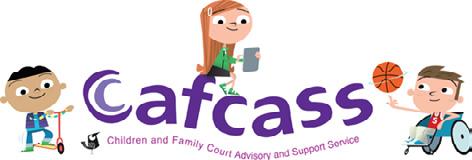








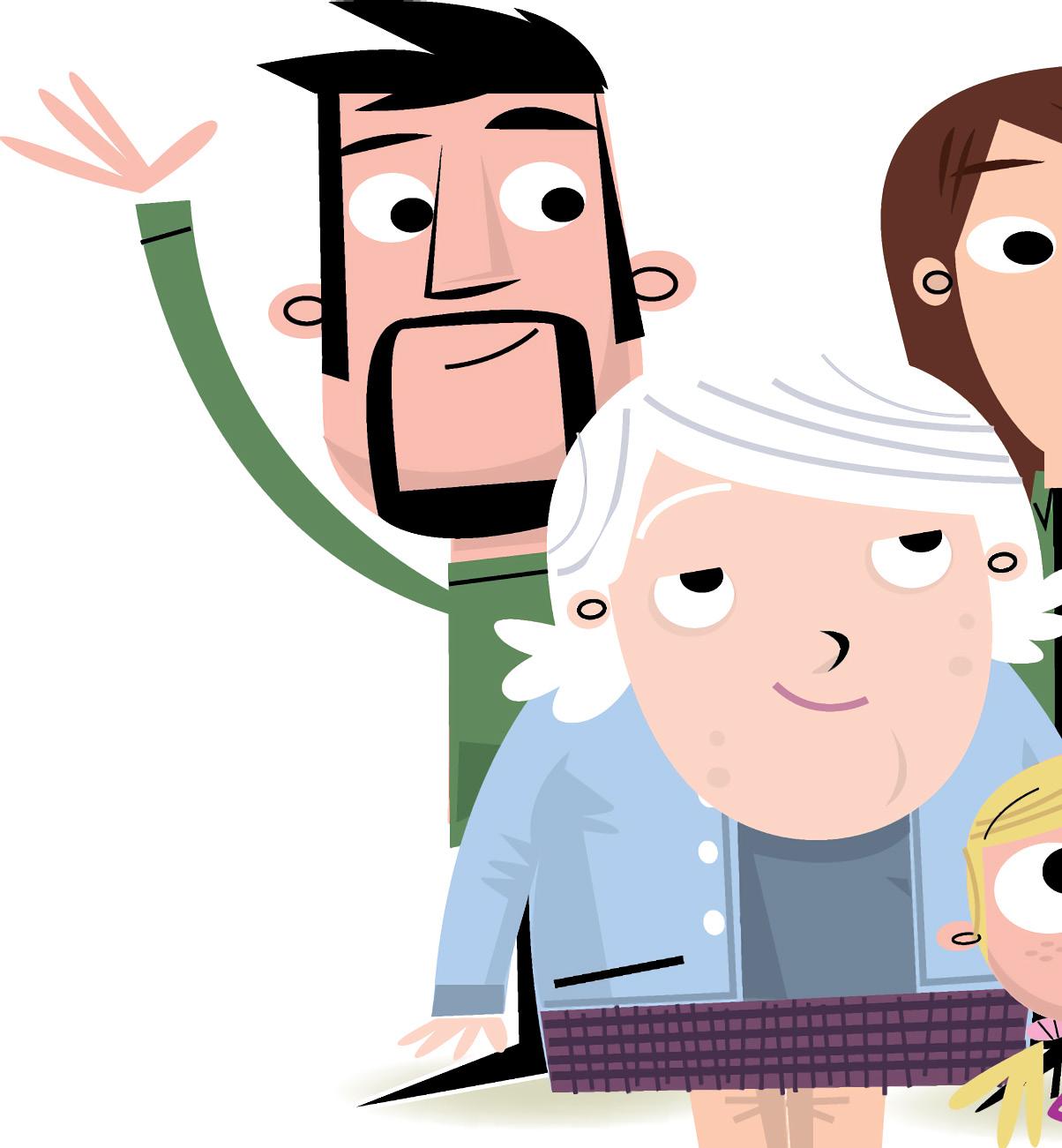


From receiving the worst possible rating to being outstanding a decade later, Cafcass CIO Robert Langley describes the organisation’s digital journey

Utilising the right technology has the potential to transform lives, but arguably nowhere is this as apparent as in the case of the Children and Family Court Advisory and Support Service (Cafcass).
Cafcass works exclusively in England with children and families who are involved in the family courts. It employs about 2,300 people, with a flexible workforce to ensure that children's voices are heard in the family courts.
Appointed by the courts, the organisation works across private and public law and supports more than 140,000 children and young people each year.
For Robert Langley, who is Chief Information Officer at Cafcass and also part of the organisation’s corporate management team, technology is crucial to ensuring that children and staff are supported: from enabling hybrid working to providing case workers with the tools they need.
“The main focus of my job is essentially to make sure that the technology that we've got works when it's needed, as people want it to, and hopefully expect,” he says. “So, I'm involved across the organisation, looking at all aspects of our work as a public body.”
Since joining Cafcass in 2008 as part of a small team of three or four people, Langley’s position - and the organisation itself - has gone through a great deal of change.
 Robert Langley is the Chief Information Officer at Cafcass
ROBERT LANGLEY CHIEF INFORMATION OFFICER , CAFCASS
Robert Langley is the Chief Information Officer at Cafcass
ROBERT LANGLEY CHIEF INFORMATION OFFICER , CAFCASS
Cafcass has gone from being rated by Ofsted, the inspector, as inadequate in 2008 to being ranked as outstanding a decade later, representing an impressive turnaround which was driven by a single-minded focus to improve how the organisation works.
“I arrived as part of a new team of people coming into all sorts of different parts of the organisation to transform Cafcass, because we were pretty low as an organisation,” Langley explains. “There was quite a lot of criticism from all sorts of different sources, and we were getting the worst possible ratings from the inspectors.

“We
“In that first 10-year period, we took ourselves in stages up through the rankings,” he adds. “And we came out in 2018 as an outstanding organisation overall, which everybody's incredibly proud of. That's the best possible verdict from the inspectors, so from the worst possible to the best, all within a decade, is quite a turnaround, very hard to achieve.”


INDUSTRY: PUBLIC SECTOR LOCATION: UNITED KINGDOM
After postgraduate research, Rob moved into public service, starting in performance and data analysis for the police and children’s services. Taking on an increasingly broad information management and technology brief, he has been heavily involved in organisational improvement and digital transformation for over 20 years. Most recently, he has led the technology function at Cafcass and been part of the corporate management team, building delivery partnerships and enabling our transformation into an outstanding organisation with sector-leading technology. A strategic thinker and inclusive leader, Rob enjoys working in an environment where everyone is focused on achieving the best possible outcomes for the children and families whose lives we touch.





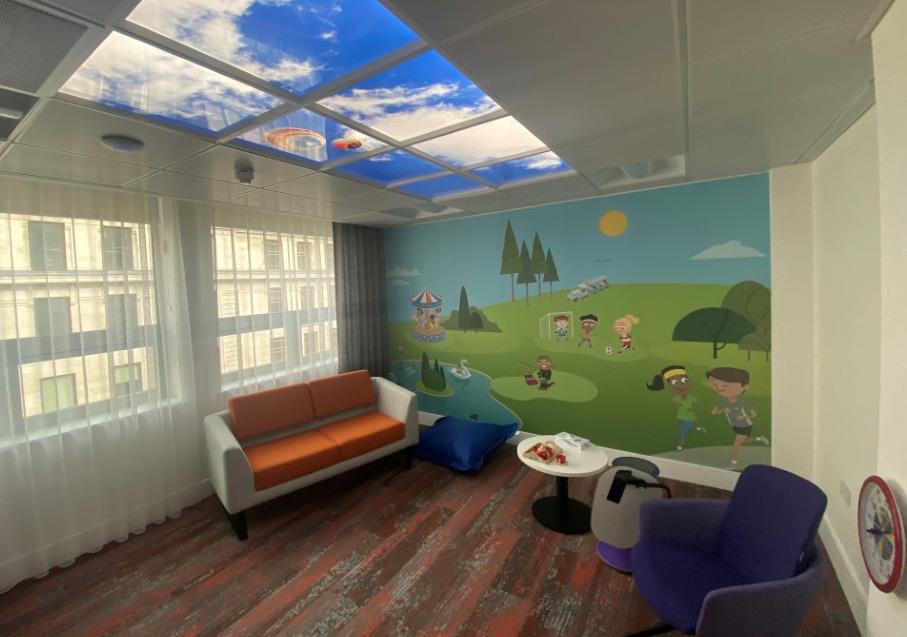
One key part of the dramatic improvement is the use of technology, which has been used holistically to underpin Cafcass’ strategy.
“It's not just the technology changes that we've made that have impacted that, but I think that has underpinned a lot of what we've been able to do,” comments Langley. There have been wholesale changes in social work practice as well, trying to make sure that people are emphasising the importance of understanding the uniqueness of each child, and their experiences, spending the time talking and listening to families.
“But because of the changes that we've made to the way the business runs, that's been much more possible,” he adds. “So, we've got far less variation in business practice, so we're not a series of disjointed
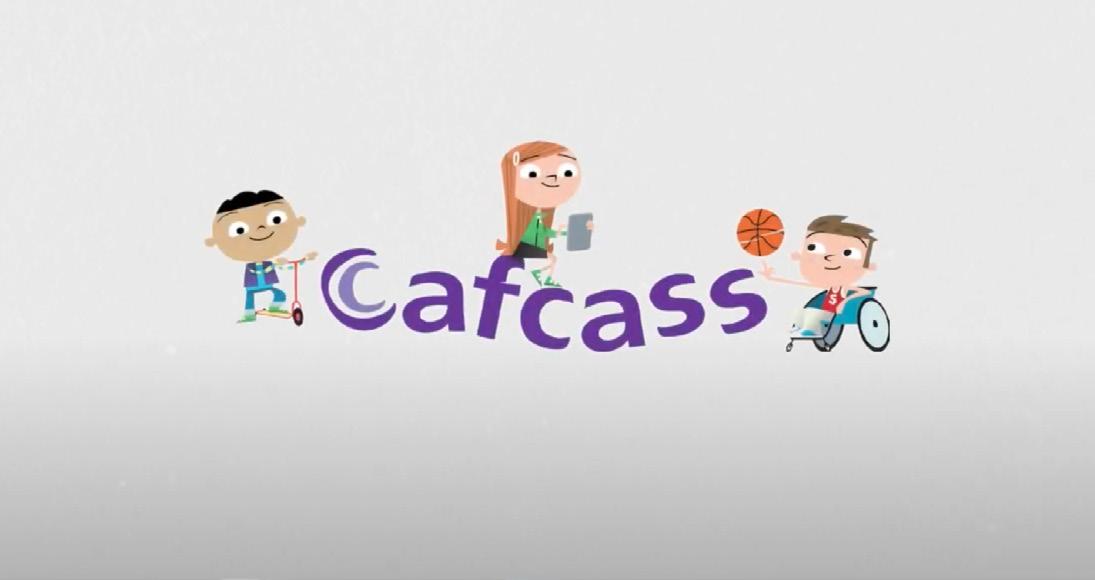 ROBERT LANGLEY CHIEF INFORMATION OFFICER , CAFCASS
ROBERT LANGLEY CHIEF INFORMATION OFFICER , CAFCASS
regions working in unique ways. We've done a huge amount of centralisation of core services. So, it should mean that, whether you're in Cumbria or Cornwall, you get a similar experience that, hopefully, is a very, very good experience.”
Describing digital transformation as working hand in hand with the business change, Cafcass has avoided having a separate IT strategy or digital strategy, Langley explains.
The organisation’s journey started simply, making sure that the social work staff – known as family court advisers or guardians depending on their role – were able to work remotely and expanding the number of mobile phones in use, before beginning
“Some years before we reached the period of the pandemic, everybody had a hybrid laptop and smartphone, from the receptionist up to the chief exec”
to look at the case management system, which went through a number of iterations.
“Firstly, we had a case record system with lots of filing cabinets, and then we had a case recording system with a digital document store,” he says. “And then we moved to a unified, proper case management system, which is cloud-based, and available everywhere. And now it is just the beating heart of the organisation.
“We are wholly digital first. Those hundred-odd offices that we used to have when I started were places to keep the filing cabinets. They were places to go to use the computer. We've got 33 offices now. And those are welcoming places to meet families and children.”

The COVID19 pandemic represented a difficult time for all - but the fact that Cafcass had already established a hybrid working environment made for a smoother transition as the world locked down.
“Some years before the pandemic, everybody had a hybrid laptop and smartphone, from the receptionist up to the Chief Exec,” Langley describes. “We've got SaaS systems for HR, finance, and all the other core systems. Our centralised analytics function is also so important.
“We knew that those people could survive without an internet connection because they could hotspot from their phones or they could go and work from home. And then, of course, March 2020 came upon us, which everybody still remembers. But what it meant for us was, for as short a time as possible – because when you're in a people business like ours, you need to meet people in person - we took the decision to move to a fully-remote working model and temporarily closed the offices.
“The workforce was used to it,” he says. “People knew what they were doing. We could take all our functions and people could go and work from home or wherever they needed to. And the technology was there, which meant that we could focus our attention as a management team on keeping


“We've
staff safe, and on continuing to provide the best possible service in the circumstances with children and families.
“It put us in a really strong, and I think resilient, position, that commitment to a hybrid way of working that we've all started talking about in the last couple of years,” Langley adds.
Describing it as the ‘beating heart’ of the organisation, the decision to upgrade Cafcass’ case management system was an integral part of the digital transformation.
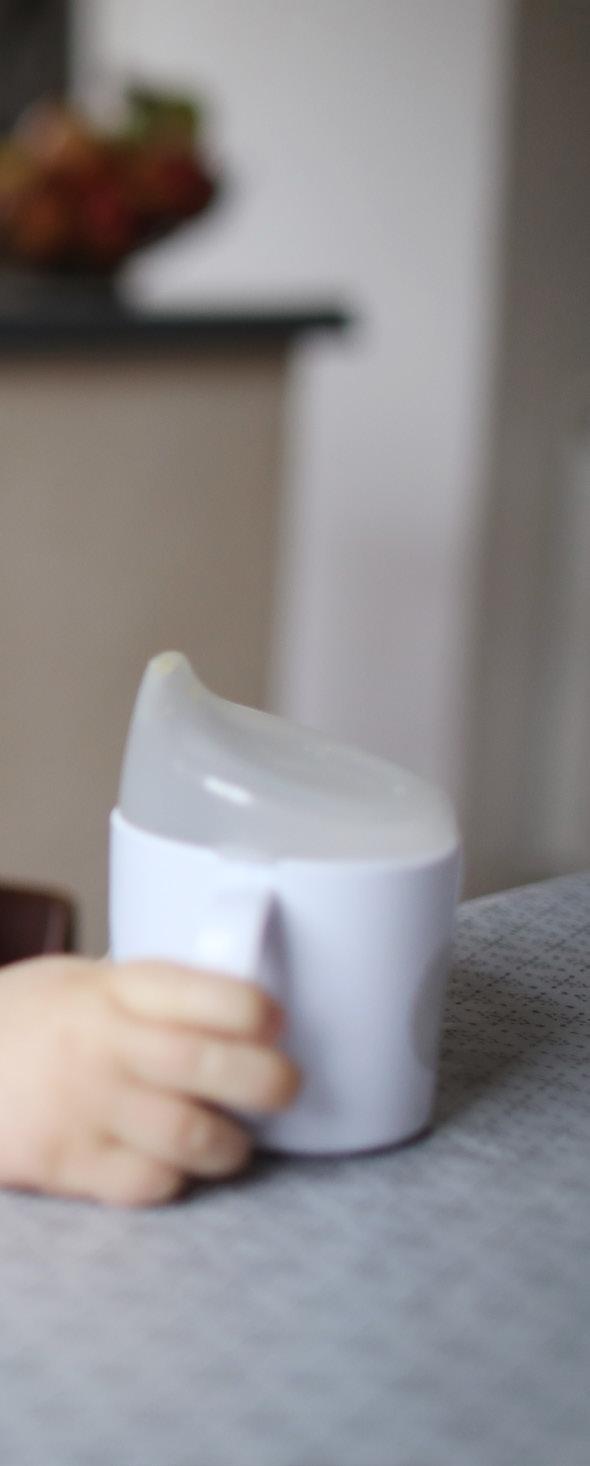
Upgrading such an important system in the worst of the pandemic might seem a surprising decision but, as Langley explains, the benefits far outweighed any potential difficulties.
“We decided that the core product that runs our business should be replaced during a pandemic,” he laughs. “The original driver was a purely pragmatic technical decision because the previous iteration was based on SharePoint 2010 as the back end. It was going end-of-life, so we had to replace it.
“We took the opportunity to do something a bit more than just change the version of SharePoint, and do something really special. And working with Version 1, our partner for
“We've done a huge amount of centralisation. So it should mean that whether you're in Cumbria or Cornwall, you get a similar experience that, hopefully, is a very, very good experience”
ROBERT LANGLEY CHIEF INFORMATION OFFICER , CAFCASS
that, I'd like to think, and I certainly say, that what we've got is probably one of the best case management systems around now.
“We did a phased implementation while everybody was working almost entirely remotely, and it was a remarkable success. It could have gone either way, I think. But we were confident in the project and training teams, and people really engaged with that.”
Enabled by SaaS solutions, the transition to the new CMS, called ChildFirst, has benefitted from remarkably positive feedback since its implementation.
“We were coming from a place where people really liked the old case management system, the so-called electronic case management system,” comments Langley. “They liked it and they felt it did what they needed it to do. But when we started bringing the stories about what was going to be, everybody engaged with that.”
“I think we did six phases over about 13 months - we started in June 2020. So we were deep into lockdown territory. And
after that final drop, we asked people what they thought of their new, shiny browserdelivered, single sign-on system. And we were slightly taken aback because we got a 90% overall satisfaction rating from people. And they told us it was a real improvement on the previous system, which in my experience is a rare and special thing in any technology project to get that level of feedback,” he explains. “It probably feels like quite a high-risk thing to do, but I think we got it right.”
As with any organisation, Cafcass utilises a network of partners to help the organisation deliver its goals. One such partner is Jigsaw24, a relatively recent addition to the ecosystem.
“When we needed to upgrade our smartphones, Jigsaw24 came to us with a great proposal,” Langley explains. “Beyond the basic just device as a service, it fitted well with a remote working model, and fits into the core service that Littlefish provides in the desktop support service.
“One of the things I'd say about our work with all of our partners at Cafcass is that we all know that it's hard work to deliver good services to people,” Langley adds. “It involves a bit of back and forth and all those kinds of difficult discussions from time to time. But the critical thing is that it's a united front to the organisation and to the staff who are receiving the service. As we’re getting 95% plus satisfaction with the service desk, and a declining number of incidents per person, I’d say that suggests it’s working.”
The near future has the potential to be a very challenging time, amid ongoing economic challenges.
“We are dealing with about 11% more children than pre-pandemic at the moment.
So that's about 6,500 additional children”

Implementing and introducing a new case management system in the middle of COVID19 lockdown was, as Langley describes, a huge undertaking. Starting in June 2020, the team worked in six phases over around 13 months to deliver an improved system, which received a remarkable 90% overall satisfaction rating. “Since then we've done quarterly iterations, listening to staff and the strategic imperatives; we're constantly evolving,” Langley says.



“In the UK, and globally, we've got an economic situation that is difficult, which has a knock-on impact potentially on government finances,” Langley explains. “So, there are underlying considerations to think about.”
There are also challenges in family justice more broadly, around the absolute numbers of children and families in the system, but also the delays in cases, which is in part a hangover from the pandemic.
“We are dealing with about 11% more children than pre-pandemic at the moment,” Langley adds. “So that's about 6,500 additional children. And of the roughly 34,000 open and active children’s cases that we're currently supporting, about 15,000 children have cases that have been open for more than 52 weeks.
“If you imagine that in the context of a child's life, a year has a huge impact. The pandemic has been at the centre of increasing those case durations across the family justice system, which is really challenging for a group of organisations that are desperate to improve.”
There are huge plans in the future, Langley describes, including beginning to pilot artificial intelligence (AI) and background automation to free up staff time, while there are plans for a website refresh in the near future.

“We've got some really interesting irons in the fire to start testing out carefully what the role of AI could be,” he comments, “which I'm really excited about because we've been talking about it for quite a long time. But I think we might finally be able to actually do some projects to test out some of the theories.”
“Security is of course still incredibly important and we undertake a lot of work in the background, making sure everything remains secure.
“I really want to spend some more time thinking about our environmental impact as well,” Langley concludes. “Reducing our footprint in various ways would be a great thing because we need to acknowledge that that's the context that we're all living in.”
“We've got some really interesting irons in the fire to start testing out carefully what the role of AI could be”

